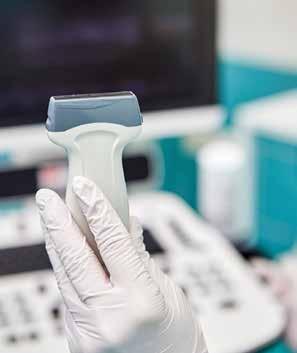ABEM NEWS
Updates from ABEM
ABEM Virtual Oral Exam Starting in December 2020 October 14, 2020
FAQs: www.abem.org/public/docs/default-source/policies-faqs/virtualoral-exam-faqs.pdf Review Types of Cases and Samples: www.abem.org/public/ become-certified/oral-exam/types-of-cases-and-samples ABEM will be offering a virtual Oral Exam in December 2020 to approximately 150-200 candidates, with larger administrations held throughout 2021. Candidates who were scheduled for the 2020 exams will be the first slated for the 2020-2021 administrations. Features of the virtual Oral Exam: • There will be no triple cases. • There will be six, 15-minute single cases, and one new case type called the structured interview, also 15 minutes.
• The eOral platform will not be used. Not using the eOral platform will allow us to launch the virtual exam more quickly. • Stimuli will be static images. • Total testing time will be less than three hours. • Content covered will be consistent with previous Oral Exams. • ABEM will hold informational webinars in November to provide more detail about the virtual Oral Exam. Additional information is available in these FAQs. If you have any questions, please call 517.332.4800, option 1, or email oralcertification@abem.org. Thank you for leaving one message when you contact ABEM; doing so will allow us to respond to all calls more quickly.
The Development of ABEM Continuing Certification: A Reason for Applause? Mary Nan S. Mallory, MD MBA — President, ABEM
October 28, 2020
development /dəˈveləpmənt/ • a specified state of growth or advancement • an event constituting a new stage in a changing situation The one constant to ABEM’s continuing certification process is that there have always been requirements to recertify. Initially, physicians could opt to take a high-stakes, written recertification exam or an oral exam to recertify. In 2004, the ConCert Exam and LLSA requirements were instituted, and in 2011, attestation to a Patient Care Practice Improvement (PI) activity and a Communication / Professionalism (CP) activity were required. As can be expected with any change, these modifications were not met with overwhelming applause. The institution of the LLSA requirement was initially seen as just “one more thing” that busy emergency physicians had to do. There were “too many articles and too many questions.” There was confusion about seemingly “burdensome” PI and CP attestations, with some thinking patient data needed to be submitted. And the high-stakes, high-stress ConCert Exam came with travel and preparation time and costs for the physician. ABEM listened and physicians’ comments prompted review and some adjustments. The number of LLSA articles and questions were reduced, and the activity eventually became one applauded by physicians. The CP attestation was dropped as not being relevant to practice in the emergency department. More recently, a summit of representatives of
all Emergency Medicine (EM) organizations was convened to discuss the ConCert Exam, followed by focus groups and surveys of all ABEMcertified physicians. That exploration ultimately led to the development of MyEMCert. Each change made by the Board has been made through the lens of whether it would improve the continuing certification process while still maintaining a high standard for certification. The recent changes to the process reflect that philosophy. MyEMCert is designed with the uniqueness of Emergency Medicine in mind and was informed by the preferences of ABEM-certified physicians. It removes the high-stakes, high-stress ConCert Exam as a requirement and replaces it with an open-book, online, personal for learning assessment that can be taken anytime, anywhere. Topic-specific modules are based on subjects that are clinically relevant to the practice of EM. Key advances facilitate learning and amplify medical discoveries so you can assess and use them to improve patient care. These are characteristics that incorporate physician needs, improvements to the process, and high standards. The establishment of a 5-year certification period has been made using the same criteria. During the exploration of the ConCert Exam, physicians mentioned that ten years between exams was probably too long. Emergency Medicine practice evolves at such a fast pace that such a space of time was too long to ensure physicians were keeping up to date with current changes. A 5-year certification cycle encourages ongoing engagement to stay current with key advances in the specialty and demonstrates to the public that we are all committed to doing so.
>>
COMMON SENSE JANUARY/FEBRUARY 2021
15























